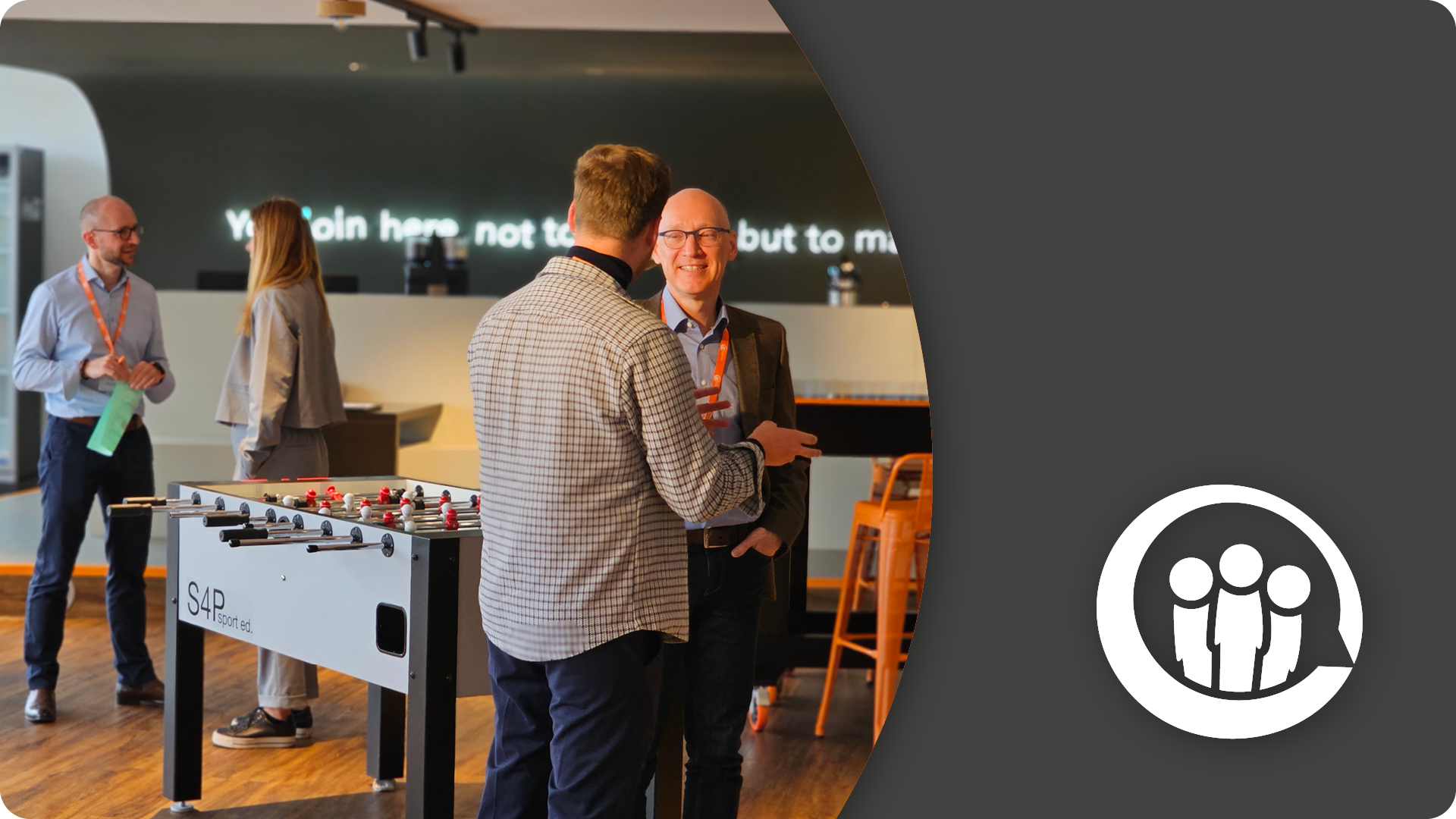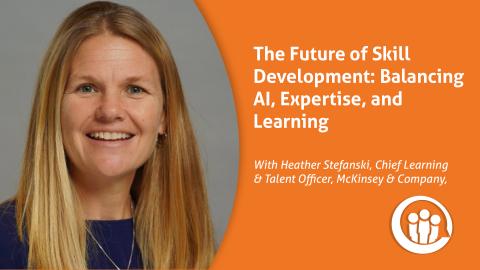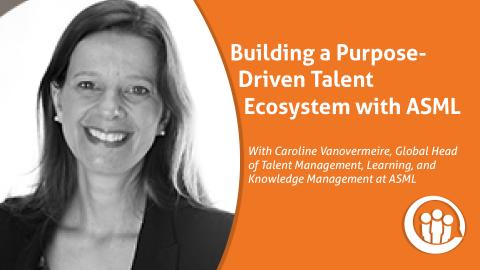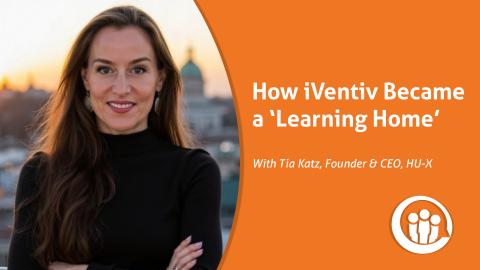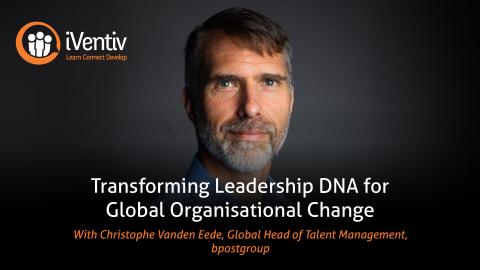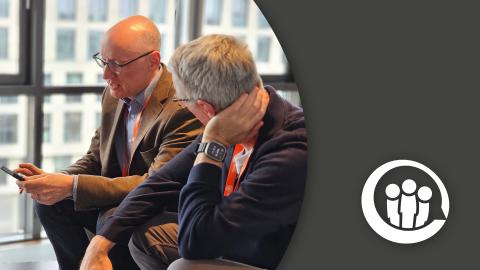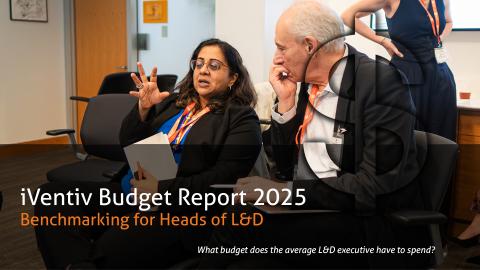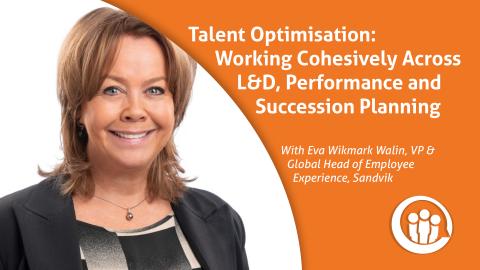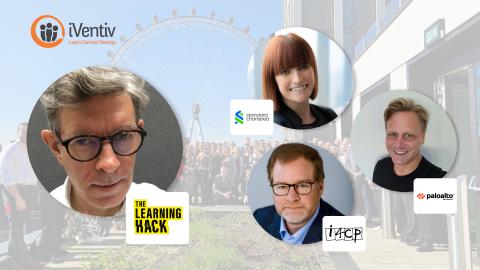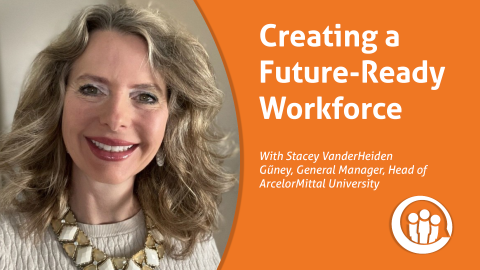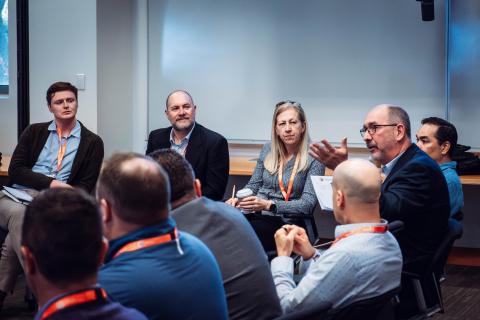Submitted by Kerry Summers on
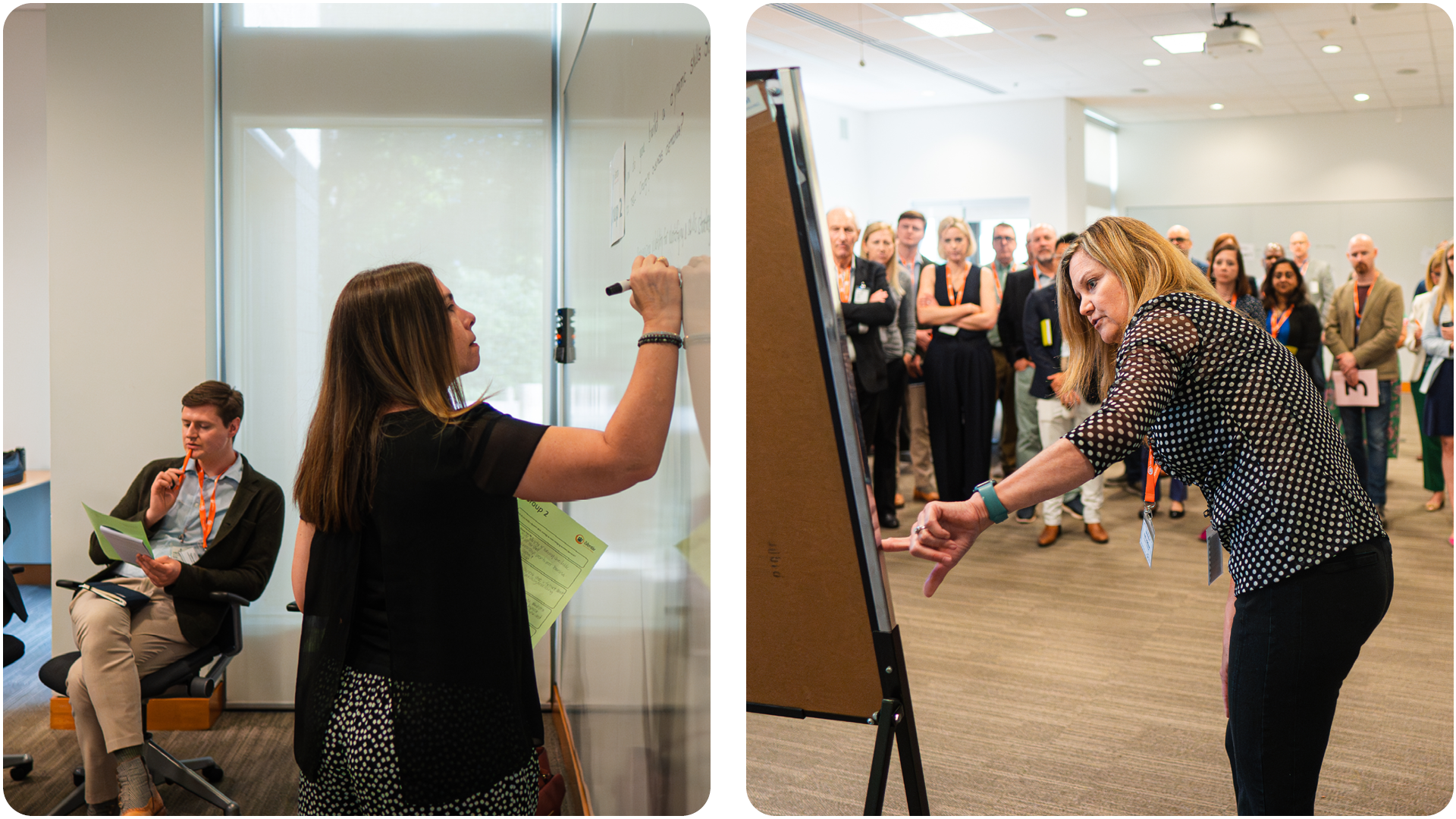
AI isn't the future, it's the now
Artificial Intelligence has rapidly become the defining theme of 2025, with 55% of attendees picking it as their topic of interest. Previously bundled in with virtual and augmented reality on most L&D teams’ agendas, AI is now leading the conversation outright. For the iVentiv community, it’s not a future priority, instead, it’s a present imperative.
According to the groups in Europe and the USA, AI’s role is evolving from novelty to necessity. It is increasingly viewed not as a threat to human intelligence, but as a complement to it. The focus has shifted toward using AI to improve productivity, streamline administrative tasks, personalise learning, and preserve institutional knowledge.
Organisations are also turning their attention to governance by establishing ethical frameworks and clear parameters for AI usage, especially when it comes to data protection, solution selection, and aligning tools with overarching business strategies.
The overwhelming feeling was that the more that AI is integrated thoughtfully, the more space it creates for meaningful, human-driven interactions across the enterprise.
Leadership in an AI enabled world requires a new mindset
While AI is commanding much of the current attention, leadership is undergoing its own reinvention and remains a focus for almost 53% of attendees. Today’s most effective leaders don’t just embrace AI, they reshape themselves and their organisations to meet it with clarity and confidence.
Discussions throughout iVentiv sessions emphasised that leadership in this new context is less about command-and-control and more about mindset. Leaders must become frameless, capable of thinking beyond legacy systems and rigid structures.
Delegates have discussed how, in their view, transparency, adaptability, and courage are essential to navigating uncertainty. The same goes for psychological safety, especially as AI introduces both new efficiencies and new anxieties. In this view, strategic narratives must go beyond tech to centre the employee experience, ensuring that transformation doesn’t overwhelm or alienate the people driving it.
Ultimately, the consensus as it stands is that leading in the AI era demands not just digital fluency but emotional acuity.
Are skills-based strategies mandatory?
Across sessions, one strategic priority consistently rose to the top: the move to a skills-based organisation, which matched AI on the priority list for almost 56% of participants. Traditional job architectures are proving too rigid for today’s fast-paced business demands. Instead, organisations are rethinking how they define, develop, and deploy talent by focusing on capabilities rather than titles.
Seemingly, the successful skills-based strategies begin with a clear understanding of what capabilities currently exist within the organisation, what is needed to deliver on future priorities, and how to assess the gap between the two. Advocates of skills-based approaches also see executive alignment as critical, not just for approval, but for driving visibility and cultural traction.
Those strategies tend to start with the creation of a shared taxonomy of skills, with frameworks for upskilling that close both individual and business-critical gaps. L&D leaders are using pilots such as internal gigs or targeted workforce planning to demonstrate early value and drive adoption. While technology enables this shift, culture sustains it. The journey requires commitment, patience, and clear communication.
Reskilling is the new recruiting
For Talent leaders, the hiring market is no longer the only answer to talent gaps. In fact, many organisations are finding that external recruitment is becoming less efficient and more costly. As such, reskilling and upskilling are increasingly being treated not as side projects but as central pillars of organisational strategy.
Leaders are embedding continuous learning into their Talent agendas, reframing it as a proactive business function rather than a reactive support service. By mapping emerging skill needs, aligning them to workforce planning, and creating clear internal mobility pathways, leaders hope to address capability gaps while also improving retention, increasing agility, and reducing overheads.
This isn’t about teaching everyone to code, the idea is to build a resilient, adaptable workforce that can respond to the unexpected with confidence.
The hidden lever of high performance? Recovery
A standout insight from iVentiv’s May–July sessions came not from the world of technology or frameworks, but from the science of energy.
Nick Propper of Impact Human Performance challenged the widely held belief that peak performance requires constant output. Instead, he advocated for a model of oscillation, which involves alternating periods of effort and recovery to sustain effectiveness.
When individuals are in perpetual “go mode,” Nick says, their cognitive and emotional resources deplete, leading to stress, reactivity, and eventual burnout. Nick urged leaders to embed recovery into daily routines, through simple micro-practices, and introduced the idea of a “recovery menu”— a personalised toolkit of small, replenishing actions.
The key takeaway? Recovery isn’t indulgent—it’s a strategic discipline. For sustained performance, Nick believes we must design for restoration, not just execution.
Coaching is a culture, not a programme
Many organisations invest in coaching and mentoring, but many L&D leaders feel that too few embed it deeply enough to drive real cultural change. At iVentiv, senior leaders explored what it truly takes to make coaching part of the organisational fabric.
The essentials are generally agreed on: define what coaching and mentoring mean in your context, secure visible buy-in from the top, and build a cadre of trained, trusted coaches.
Accountability was a key theme too. Setting clear expectations, creating feedback loops, and modelling the desired behaviours have all helped leaders embed development into the day-to-day. When done well, coaching becomes more than an initiative, it becomes a core way in which the organisation learns, connects, and grows.
Future-proofing starts with Executive Development
To prepare organisations for external change, Executive Development pros increasingly want to go beyond traditional leadership training and focus on building adaptability, resilience, innovation, and strategic foresight.
This means rethinking programme design: integrating scenario planning, risk management, and data-driven decision-making; incorporating diverse and inclusive formats; and encouraging real reflection on current strengths and gaps.
Engagement seems to increase when leaders see what’s in it for them, so communication must be clear and contextualised. Heads of Leadership Development say that it’s also important to break development into manageable, actionable parts. In short, the ideal future-ready executive is both agile and anchored, and development programmes must help them become both
Final thoughts: your opportunity as a c-suite leader
The landscape of Learning, Talent, and Leadership is shifting rapidly, but the opportunity for impact has never been greater.
Whether you’re launching a skills-based strategy, designing an AI governance framework, or reimagining leadership development, a key common theme in 2025 has been the importance of alignment. When initiatives are tied to business value, embedded into culture, and driven by curiosity, Learning leaders are seeing stronger results.
Now is the time to act, with clarity, courage, and collaboration.
Let’s continue the conversation. Join us for an upcoming Executive Knowledge Exchange near you, now, and join iKnow to read this Executive Summary and more in this series in full.
Related Resources
